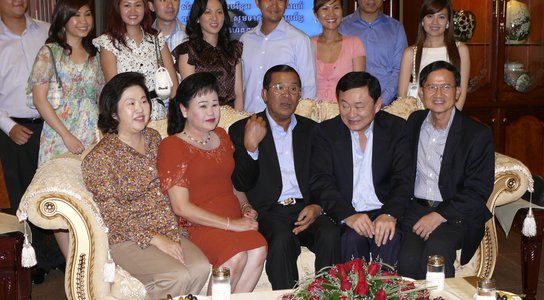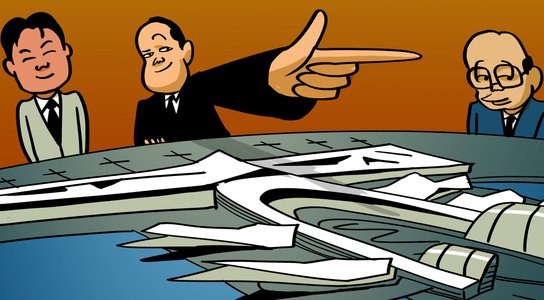Cambodia’s Prime Minister is an old hand at smoke and mirrors, and he’s up to his tricks again. Global Witness campaigner Emma Burnett writes about why the recent release of Cambodian political prisoners isn’t as benevolent as it seems, and why it’s critical that proposed sanctions by the US and EU come to fruition.
Since winning a landslide victory in a July election that was heavily rigged in his favour, Hun Sen’s government has released around 20 of his critics from jail, in what a spokesperson called a ‘humanitarian’ move. The Cambodian press has been awash with scenes of ecstatic reunions between opposition MPs, journalists, rights activists and their loved ones. Social media is again buzzing with messages of hope.
For those close to them, the release of these brave activists will take some of the sting out of Cambodia’s slide into dictatorship. But we mustn’t be fooled by small signs of mercy. These people were locked up to send a message – that Cambodians shouldn’t dare speak badly of their government or challenge its dominance. Their release is not symptomatic of a change of heart, but a change in strategy.
With a muzzled population and another election under its belt, the regime is now turning its attention back to the world stage. These deceptive acts of benevolence have one goal at their core – to ward off threats of foreign sanctions against Hun Sen or any members of the system of elite corruption propping up his government.
Now
is not the time to turn off the heat on Cambodia’s regime. Diplomatic pressure from
the US and EU is finally making them squirm, because this time it poses a real
threat to their own wealth, power and privilege.
The US House, for instance, has just passed an Act that proposes sanctions on Hun Sen’s inner circle for their role in undermining democracy and committing serious human rights abuses. This could affect high-ranking politicians, the military executive and business elite who have played a key role in Cambodia’s transition to a one-party state. If the Senate backs this legislation, these individuals and their relatives could be barred entry to the US, and any assets, property or bank accounts they own there could be blocked.
This would hit the regime where it hurts. Sanctioned individuals would have to kiss goodbye to the fancy apartments, shopping sprees or holidays in the US they may be accustomed to. More significantly, they could be cut off from the US banking system. This would not only shut off US trade and investment opportunities for businesses they profit from, it might also raise their risk profile among reputable banks in other global financial centres.
Brussels has thrown its hat in the ring too, with growing appetite to drop Cambodia from the EU’s Everything But Arms preferential trading scheme – a serious threat because Europe’s a major export market. As Global Witness’ 2016 Hostile Takeover investigation revealed, members of the Hun family have grown vastly rich because they own or part-control companies across most of the country’s lucrative industries, with links to big international brands. Likewise, a least one of Cambodia’s most notorious business tycoons, Senator Ly Yong Phat, is believed to have made a fortune exporting sugar to Europe tariff-free, with devastating consequences for Cambodians.
Let’s not forget what’s at stake here, and why sanctions are crucial. In power for 33 years, Hun Sen is the world’s longest-serving prime minister. He has ruled with an iron fist that has seen critics attacked, imprisoned and even killed. Meanwhile, as prime minister he has presided over a kleptocratic system of state looting that has involved the forced and violent eviction of Cambodians to free up land for industries like logging, mining and agribusiness that are dominated by the country’s political, military and business elite. More than 830,000 people have been affected, deepening poverty in some of the country’s most deprived areas.
There is nothing ‘humanitarian’ about Cambodia’s dictatorship. A handful of political prisoners may well now be free, but they should never have been locked up in the first place, and the election is now a done deal. Meanwhile, opposition leader Kem Sokha has been in jail for nearly a year without trial, more than 100 opposition MPs are banned from politics, the free press has been shuttered into oblivion, and citizens have been hounded online for comments deemed ‘anti-government’.
Foreign sanctions could help change this. Unless they face real consequences for their actions, members of Cambodia’s system of grand corruption will have every incentive to continue misusing their power. Public outrage, international isolation, and denial of access to financial and export markets would rattle the economic and political structures that have helped keep Hun Sen in power, and may just force the premier and his inner circle into rethinking their game plan.

